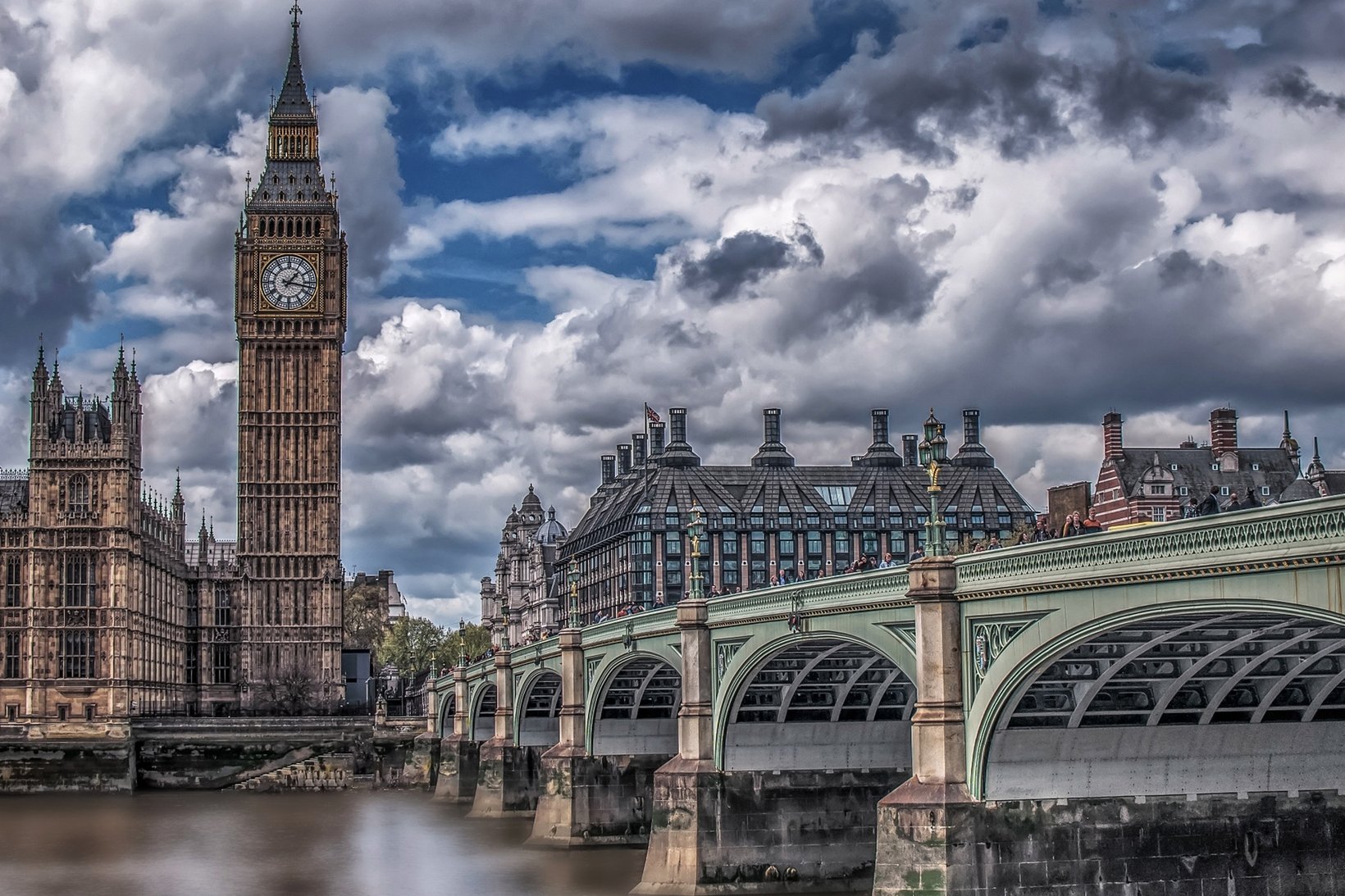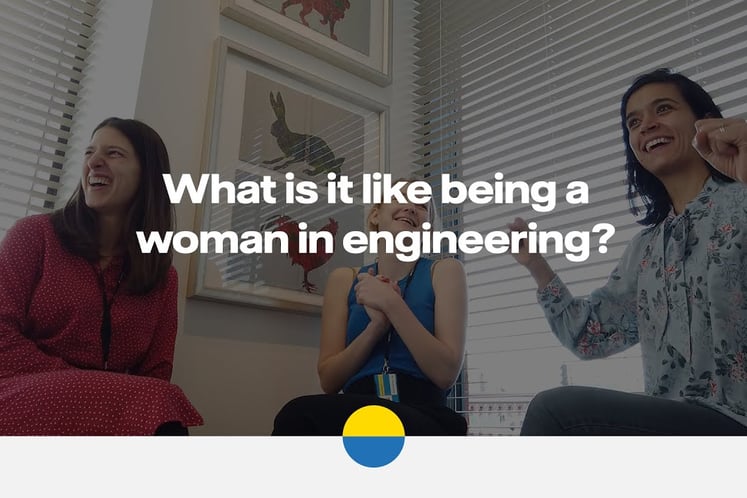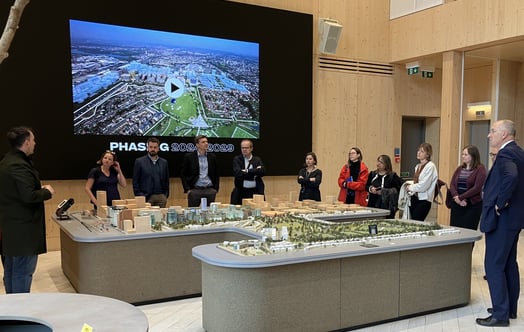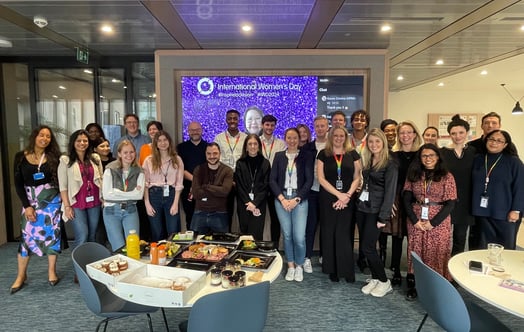Selene Molina, Sandra Šlihte and Adriana Rodriguez reflect on their participation in the ADE's Heat and Decentralised Energy Conference 2020.
This year's conference, with a focus of levelling up with local energy, aimed to bring together ideas and insights about the transformation of our energy systems with a global audience.
Embracing Diversity in the Workplace
As part of the ADE Rising Stars, our Lead Engineering Manager Selene Molina led the panel on Embracing Diversity in the Workplace. Among the topics discussed was the role young professionals can play within large companies to advocate for a more diverse workforce:
"We discussed how those who are about to move into the job market are evaluating companies on their diversity practices. Young people tend to now look at the company websites, social media, and look to see personal stories from employees. They will look at the 'People side' instead of the 'this is a big company with a big name' side. They will do a more in-depth analysis of how active the company is in supporting diverse environments. Not only diversity but also climate change.
There were also many open discussions about how to make companies more active and how to help them. We spoke of how small companies or young professionals in a new company can move things and push things to happen. One member gave advice on continuing to try and continuing to ask and get involved based on her experience running a diversity change group in a small company that ended up being absorbed by a larger one. They continued to push and got results in the end. If there's no group already created, then push for the conversation. It was quite an active and giving panel."
Just be engaged. It's not about numbers or statistics, it's about what you do and your approach - more about the qualitative side of things."
Routes to Zero Carbon with the District Heating Divas
Head of Engineering Sandra Šlihte took part in the District Heating Divas panel on the Routes to Zero Carbon:
"What was interesting to see is how the conference encompassed more discussions surrounding waste heat and heat pumps, rather than gas CHPs. There were different presentations and case studies on heat pumps and waste heat from sewage. Three years ago we were the only ones talking about it and now three years later almost everyone's doing it. The market has moved on - they know what they're talking about and they know what they want. No-one has figured out how to do it yet, but we know what we want. It's moving towards waste heat and different sources that are not gas. There are projects out there and that not all of them are figured out fully yet, with a lot of challenges to still be resolved - but it's good. We're all moving towards the same goal from different perspectives."
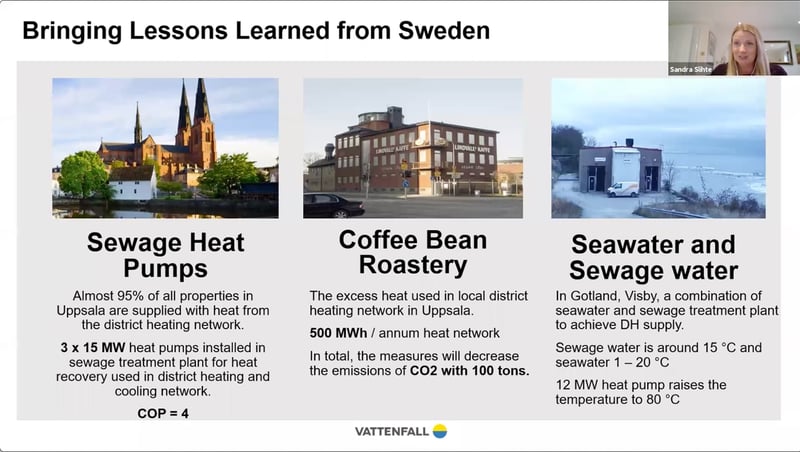
"After the panel, there were many requests to keep the conversation going. The industry is like "We're ready. Waste heat, heat pumps - we're ready to go forward, but we have all these questions like 'how are we going to do it?' Which is good because we're finally at the stage where we can say 'yes, we're ready to talk about the detail now'".
Video player requires marketing cookies.
To view this content please click here to allow marketing cookies.
Vattenfall Heat UK actively encourages our team to join working groups and sponsor events to engage with other women in the industry, as well as mentoring girls getting their start learning STEM subjects to lead them onto an engineering pathway.
Right Thing Right Place: Delivering Regionally
Regional Director of the South and Wales UK Adriana Rodriguez joined a panel about regional approaches to energy:
"The different panellists talked about how their organisations are looking at energy and decarbonisation with a regional approach.
There were some good and interesting discussions around the fractured approach to doing these kinds of projects, where, as an industry, we tend to look at one project, and then another project etc. It doesn't really help to achieve volume and real change. What is needed is a more joined-up approach where the needs, local circumstances and resources of a region are looked at."
Charlotte Owen opened the panel discussing this, and Adriana also shared examples of how a regional and zoned approach to heat has proved to be a successful way of decarbonising heat, whilst bringing resilience and keeping fair energy prices in our heat networks in Amsterdam, and how this model can be replicated in the UK.
Kate Ashworth from West Midlands Combined Authority also shared the concept of Energy Innovation Zones; these are the intersection of (1) local energy, business, and social challenges, (2) capability, skillsets and innovation, and (3) geographical scale; and result in very targeted regional solutions to the local social, business and energy needs.
A key takeaway from that panel was the importance of communicating change to the end-users. Not to those of us doing infrastructure, not to investors, but to the end-users - for them, it's quite important. So that when they are faced with new things to use, it will help to secure their buy-in in the journey. How do we communicate why these things matter and how do you bring everyone on the journey?
A lot of those topics are hard to break into, but when you start to normalise that language, it demonstrates a lot of trust shared between sectors such as energy, infrastructure and housing, and the end-user. Especially when things are put across into terms that we can all understand, not using complicated technical jargon.
Keith Owen from Northern Gas shared examples of how they are tackling this at their hydrogen hub, looking at what a transition to hydrogen would mean to end customers, for example, how hydrogen could be used safely at home by adapting heating and cooking appliances.
This whole concept of coming together as an industry at events like these is basically about bringing people to the table to talk about those things but also to work together. Otherwise, you end up with "one solution", and this cannot be the case. The world is much more complex. However, it's more difficult because we may need to accept that there are 20 solutions - not just a single one. An example of this was the various innovation projects presented by Matthew Bilson from BEIS, looking at developing different technologies and models for new builds and retrofit.
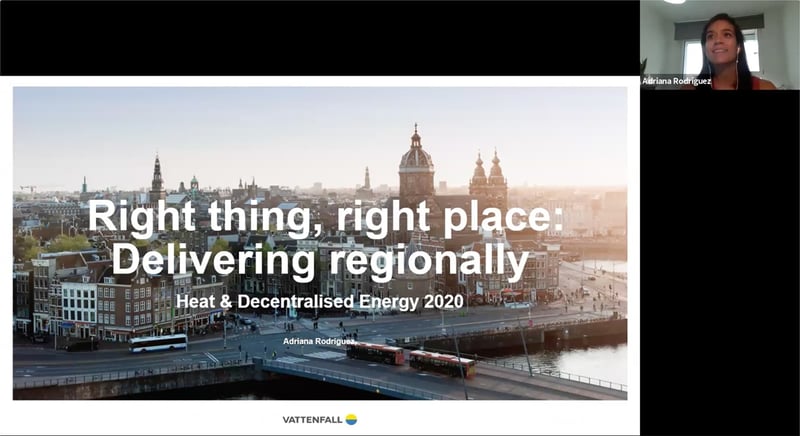
There's a lot to be said around the diversification of energy methods. There isn't just one answer for heat, nor one answer for electricity throughout the entirety of the country. It's a combination of things, and it's regional, so it isn't about the technology only, but about creating the right local frameworks to drive scale in projects, create certainty for investment and deployment of infrastructure, and bringing customers along the journey with clear, transparent and simple communications.

